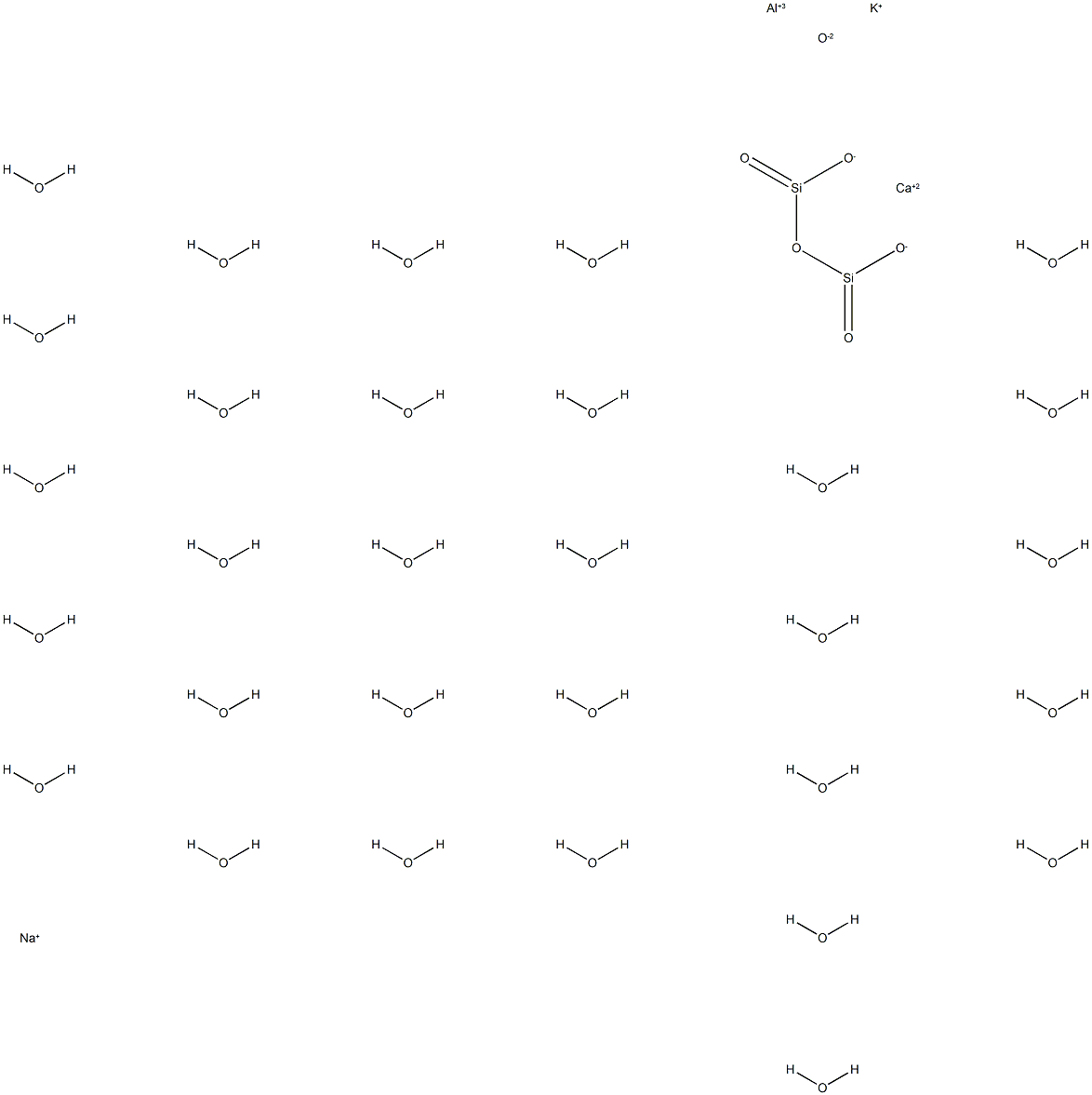Chemical Properties
Erionite is a naturally occurring fibrous mineral that belongs to a group of minerals called zeolites. Zeolites are hydrated aluminosilicates of the alkaline and alkaline-earth metals, and erionite is one of the more common of the approximately 40 natural types identified (Virta 2002). It has a hexagonal, cage-like structure composed of a framework of linked (Si,Al)O4 tetrahedra. The structure is chainlike, with six tetrahedra on each edge of the unit forming part of a chain of indefinite length. It consists of white prismatic crystals in radiating groups and occurs in a fibrous form. Erionite absorbs up to 20% of its weight in water, has a specific gravity of 2.02 to 2.08, and has gas absorption, ion exchange, and catalytic properties that are highly selective and depend on the molecular size of the sorbed compounds (IARC 1987a). Zeolites, in general, have good thermal stability, rehydration kinetics, and water vapor adsorption capacity (Clifton 1985).
Uses
Erionite is no longer mined or marketed for commercial purposes. Although other natural zeolites have many commercial uses (e.g., in pet litter, soil conditioners, animal feed, wastewater treatment, or gas absorbents) because of their unique properties, very few data are available specifically for erionite. It reportedly was used in the past as a noble-metal-impregnated catalyst in a hydrocarbon-cracking process and was studied for use in fertilizers and to control odors in livestock production. Erionite-rich blocks have been used to build houses in parts of the western United States, but this was a minor and unintentional use of the mineral (IARC 1987a).
In 1999, natural zeolites were described as “full-fledged mineral commodities” with promise for expanded use in the future (Mumpton 1999). In 2001, the global annual consumption of natural zeolites was estimated to be 3.98 million metric tons (8.8 billion pounds), and the market was projected to grow to 5.5 million metric tons (12.1 billion pounds) per year by 2010 (Frost and Sullivan 2000). Most commercial uses of natural zeolites are based on their ability to selectively adsorb molecules from air or liquids (IARC 1987a). Domestic uses for natural zeolites in 2002 were, in decreasing order by tonnage, pet litter, animal feed, horticultural applications (use as soil conditioners and growth media), miscellaneous applications, oil absorbent, odor control, desiccant, pesticide carrier, water purification, aquaculture, wastewater cleanup, gas absorbent, and catalyst (Virta 2002). Pet litter, animal feed, and horticultural applications accounted for more than 65% of domestic sales tonnage. The largest increases in tonnage sales were for use in animal feed and pet litter.
Production Methods
Erionite is a natural zeolite consisting of aluminosilicate
tetrahedra in finely fibrous or wool-like form. The
name derives from the Greek word for wool. When ground,
erionite particles resemble amphibole asbestos fibers
morphologically.

